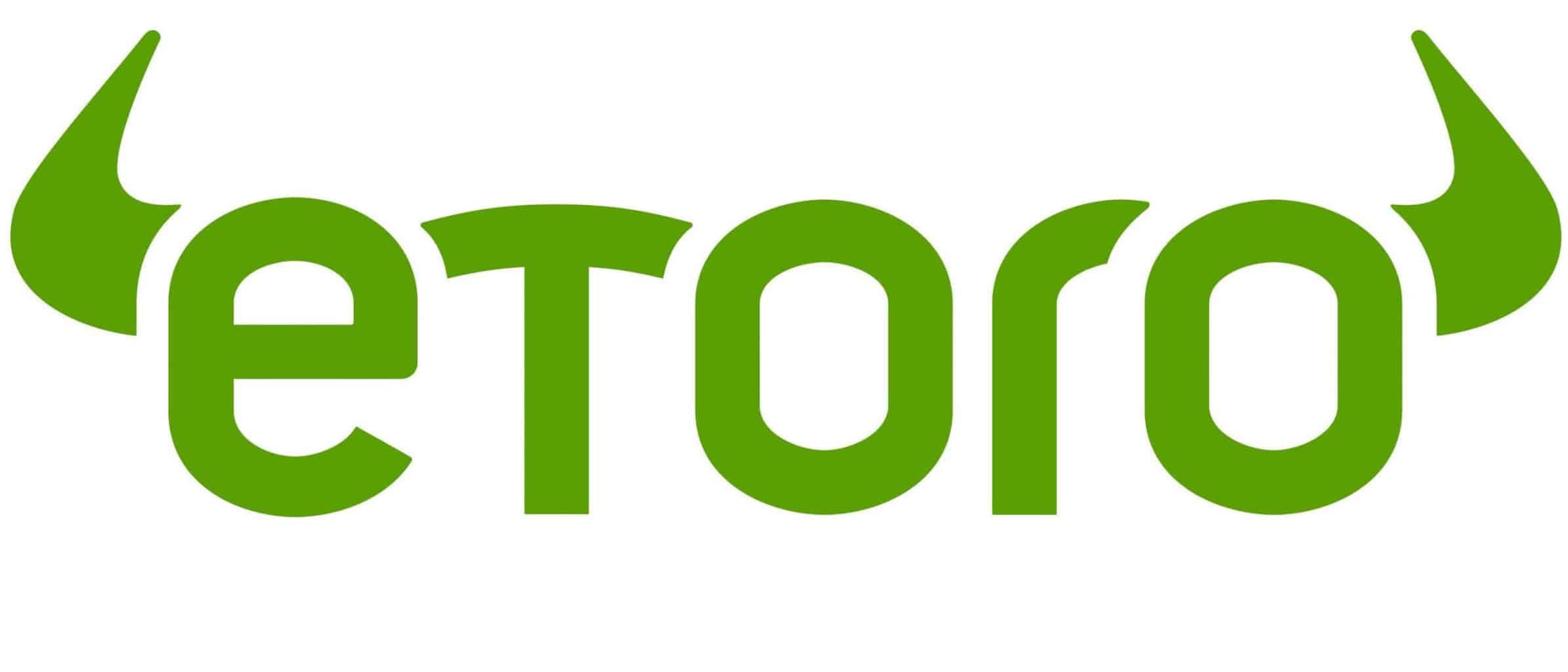AI Trading | Best AI Trading Platforms in 2021
Two of the most important factors that determine your success as a trader are a good strategy and fast execution. With an AI trading platform, you can ensure you have both of those bases covered.
AI trading allows you to automate your trades so that a bot automatically buys and sells assets for you when specific conditions are met. You can trade much more than just stocks, too; most AI trading platforms support trading currencies, commodities, and more.
If you’re interested in automating your trading, this guide will cover everything you need to know. We’ll review four of the best AI trading platforms on the market in 2021 and explain how AI trading works in practice. By the end, you’ll be able to make an informed decision about whether AI trading is right for you and which brokerage to use.
-
-
How to Start AI Trading in 3 Quick Steps:
[three-steps id=”207032″]The Best AI Trading Platforms in 2021
To get the most out of AI trading, you need a brokerage that’s trustworthy, inexpensive, and packed with tools for researching assets. With that in mind, let’s take a closer look at our four favorite AI trading platforms in 2021.
1. eToro - Best for Social Trading
eToro is one of the most popular online brokerages. It allows you to trade a huge variety of assets, including individual stocks from major exchanges like the NYSE and NASDAQ, national currencies, cryptocurrencies and commodities. Importantly, when you trade stocks on eToro, you own them outright as long as you don’t trade with leverage. That means you’re entitled to any dividends from those stocks.
What sets eToro apart from other AI trading platforms is that it’s a highly social environment. You can message other traders or join in a conversation about where the price of an asset is headed. Even better, you can copy prominent traders’ positions to diversify your holdings or try out a different trading strategy.
eToro is fairly inexpensive. The platform doesn’t charge trade commissions, instead making money off the spread. However, keep in mind that the technical analysis tools are few and far between. eToro includes technical charts, but the built-in research platform isn’t all that comprehensive. You’ll also want to watch out for the $5 withdrawal fee.
- Assets: Cryptocurrencies, Forex, Stocks, ETFs, Commodities
- Demo Account: Yes
- Trade Commissions: No
- Minimum deposit: $200
- Technical Charts: Yes
Our Rating

- Social Trading: Copy other traders’ positions
- No Commissions: Only pay based on the spread
- Wide Asset Variety: Stocks, forex, crypto, and commodities
- Minimal Technical Charts: Doesn’t include a wide set of studies
- Withdrawal Fee: $5 per withdrawal
3. Bitcoin Trader - Best for Automated Crypto Trading
Cryptocurrency trading has taken off in recent years, and Bitcoin Trader offers a way for any investor to profit off that spike in activity. This brokerage is fully automated and executes trades in Bitcoin and Ethereum for you. Unlike most other AI trading platforms we’ve looked at, you don’t have much control over how your money will be used to buy and sell assets.
Bitcoin Trader claims that more than 90% of trades that its proprietary algorithm executes are profitable. While this is may seem a little hard to believe, users are extremely supportive of the platform. Still, you’ll be best served by starting out with small amounts of money to see how this AI brokerage performs for you. Bitcoin Trader requires a minimum deposit of $200 to get started.
One of the best things about this platform is that it only takes a commission on profitable trades, not losing trades. That ensures that the algorithm developers only profit when you do as well.
- Assets: Bitcoin, Ethereum
- Demo Account: No Trade
- Commissions: Yes
- Minimum deposit: $200
- Technical Charts: No
Our Rating
- High Success Rate: More than 90% of trades are closed for profit
- Fully Automated: Requires very little work on your part
- Commissions are Profit-based: Only pay when the algorithm makes money for you
- Live Accounts Only: You can’t try out Bitcoin Trader with a demo account
4. Plus500 - Great for CFD Trading
Plus500 is a user-friendly AI trading platform for experienced users that’s built around trading CFDs. You won’t own any assets outright with this brokerage, but you can speculate on the price of currencies, cryptocurrencies, commodities, stocks, stock indices and ETFs. That’s a massive range of underlying assets.
Better yet, trading CFDs rather than base assets allows you to leverage a small amount of cash into significant trades. Plus500 offers trading with leverage up to 300:1. There are no trade commissions for buying and selling CFDs, and the spreads on most trades are impressively low.
The only downside to using Plus500 is that the research and technical charting tools are minimal. The platform does come with built-in charting software, but it doesn’t include many technical studies and isn’t highly customizable. You also won’t find much in the way of research reports or other in-depth information in Plus500 to help guide your trades.
- Assets: Cryptocurrencies, Forex, Stocks, ETFs, Commodities
- Demo Account: Yes
- Trade Commissions: No
- Minimum deposit: $100
- Technical Charts: Yes
OUR RATING
- High Leverage: Trade with leverage up to 300:1
- Narrow Spreads: Trading CFDs is very inexpensive
- Plus500UK Ltd is authorized & regulated by the FCA
- Minimal Research: Charting tool is very basic
- No Share Ownership: You’re not eligible for dividends when trading CFDs
CFDs are complex financial instruments and 80.5% of retail investor accounts lose money when trading CFDs.What is AI Trading?
AI trading allows you to harness the power of artificial intelligence to execute your trading strategy. For busy traders, AI offers a way to speed up trade execution so you never miss a price movement. AI trading platforms can also learn from the success and failure of past trades to build a better trading strategy.
How Does AI Trading Work?
AI trading relies on computer algorithms that are constantly scanning the markets to find specific conditions. These conditions are defined by you, the trader, and they’re typically founded on a combination of technical data analysis and fundamental parameters.
For example, in the stock market, you could have an AI bot search for stocks rather than a stock broker to trade based on indicators like the Relative Strength Index and Moving Average Convergence-Divergence. When these indicators each reach a specific value, the bot will trigger a trade on your behalf.
Depending on your strategy, an AI bot may be looking only at the stock market or gold market, or it may be looking across multiple asset classes. The advantage of this is that you can buy and sell whenever opportunities arise, even if it’s impossible for you to be monitoring every asset being traded at the same time.
What are the Benefits and Risks of AI Trading Bots?
Benefits
- Never miss a trading opportunity
- Create multiple bots looking for different conditions
- AI trading platforms allow trading of nearly every major financial instrument
- Apply leverage to increase your exposure to positions
- Trading fees are competitive with manual brokerages
Risk
- Easy to lose money quickly if you have a bad strategy
- Bots don’t look at important factors outside your defined parameters
- AI trading bots can be difficult for beginner traders to use
What Assets Can I Trade with AI Trading Bots?
AI trading platforms allow you to trade nearly every major asset class and financial instrument. Let’s cover some of the most common assets that are traded using AI bots.
Stocks and ETFs
You can trade stocks and exchange-traded funds (ETFs) using AI bots just like you would with a regular brokerage. Most AI trading platforms allow you to own your shares outright, which means that you’ll receive dividends if your stocks pay them out. However, be sure to check this, as some AI trading platforms offer stocks through CFDs rather than direct share ownership.
The range of stocks available is also important. Most US-based trading platforms allow you to buy any stock listed on the major US exchanges, the NYSE and NASDAQ. But, if you want to purchase international stocks, you’ll need a brokerage that includes offerings from the London Stock Exchange, Toronto Stock Exchange, or Tokyo Stock Exchange.
Forex and Cryptocurrencies
AI trading is extremely common in foreign exchange and cryptocurrency trading, since these disciplines require traders to capitalize on very small price changes. The biggest difference among brokerages is what types of currency pairs they offer trading around.
Most AI trading platforms that allow forex trading offer major currency pairs. These account for most of the forex trading that happens each day, and the pairs are dominated by the world’s major currencies: the US dollar, the British pound, the Euro, and the Japanese yen. Minor pairs typically involve trading between one of these major currencies and a less common currency, like the Australian dollar. These, along with trades between two minor currencies, are only supported on a handful of forex brokerages.
Cryptocurrency trading has become increasingly popular as Bitcoin, Ethereum, and other cryptocurrencies have grown in value. Cryptocurrency trading works essentially the same as forex trading, except that most brokerages only allow US dollars to be used as the real-world currency in trading pairs.
CFDs
CFDs enable you to speculate on the future price of an underlying asset without actually having to own it. CFDs are frequently used for commodity trading, since they give you exposure to the gold, silver, oil, and wheat markets without actually forcing you to ship and store these products.
However, CFDs are available for almost every type of asset, including:
- Stocks and ETFs
- Stock indices (e.g. the S&P 500)
- Agricultural products (e.g. corn, wheat, soybeans)
- Energy products (e.g. crude oil and natural gas)
- Precious metals (e.g. gold, silver, platinum)
- Currencies and cryptocurrencies
What Fees and Commissions do AI Trading Providers Charge?
The types of fees that AI trading providers charge varies among platforms. However, there are a few common ways in which these platforms make money.
Spreads
The most common tool that AI trading providers use to charge traders is the spread. This is the difference between what you can buy, say, a stock for, and what the seller receives for it in return. Usually, the spread is just a couple cents, but in percentage terms, it can be anywhere from 0.1% to more than 2% of the total value of your trade.
So, the spread is essentially a commission on sales. While it doesn’t change from minute to minute, the spread isn’t fixed at most brokerages. Notably, spreads tend to increase outside of normal market hours since there are fewer people trading.
In general, you’ll want to use a trading platform with the lowest possible spreads. This reduces the amount you’re paying in indirect commissions every time you buy and sell assets.
Trade Commissions
Another way that AI trading platforms can make money is by charging trade commissions. This may be in lieu of or in addition to the spread, and it can be a flat fee or a percentage of the total value of your trade. Either way, having to pay trade commissions means that you’re paying both to open a position and to close it.
Keep in mind that brokerages that charge commissions aren’t necessarily more expensive than ones that rely on spreads. Paying flat-fee trade commissions rather than a variable spread can actually be beneficial if you typically place a few large trades as opposed to many small ones.
Fees
Unfortunately, many AI trading platforms charge additional fees outside of trades. Inactivity fees, which penalize you for not placing a trade (and paying spreads or commissions), are common. Deposit and withdrawal fees are also frequently assessed.
Traders should be especially wary of overnight financing. This applies when you open a position with leverage and then hold it overnight. Keeping leverage overnight is essentially like taking out a loan, and fees can be several percentage points of your trade’s value.
What Should I Look for When Selecting an AI Trading Site?
Now that you know the details of AI trading, what should you be looking for when choosing a platform? Here are some of the top things we recommend:
Asset Variety: Having a wide variety of assets available for trading ensures that you can take advantage of opportunities across asset classes. You also won’t need to find a new platform if you decide to try out commodity trading or forex trading in addition to stock trading.
Low Fees: High spreads and trading commissions can make it harder to profit on trades, since you start off every position with a loss. Look for trading platforms with tight spreads and no trade commissions.
Leverage: Leverage allows you to maximize the value of your money by taking out a free loan from your brokerage. Just make sure that you close out trades the same day so you’re not hit with overnight financing fees.
Research Tools: Developing an automated trading strategy requires a strong understanding of technical patterns and past price history. The stronger your platform’s research and charting tools, the better positioned you’ll be to create a successful strategy.
Demo Mode: Before you unleash an AI bot to trade your money, it’s essential to make sure it can trade profitably. Having a demo account mode allows you to do this without risking real money.
Regulation: AI trading platforms should be regulated by a major licensing body. If you find a platform that isn’t regulated, steer clear; you shouldn’t trust that brokerage with your money!
Customer Support: While you’ll probably never need it, having a customer support team available is extremely helpful if something goes wrong with your account. Most reputable trading platforms have a team on standby for questions at least five days a week.
Conclusion
As computing technology gets better, AI trading platforms are popping up in more places and offering ever more asset classes to trade. The bar to trading with AI is lower than ever before, which is good news for traders who want to find every opportunity for profit.
Thanks to our guide, you have the information you need to decide if AI trading is right for you. Plus, with our reviews of the top platforms, you can pick the best one for you and get started trading today.
FAQs
How much money do I need to get started with AI trading?
The amount of money you need to start trading is just the minimum deposit amount for the platform you decide to use. There are brokerages with no account minimums, in which case you can get started with just a few dollars. However, you’ll need enough money to buy assets, so you should plan on having at least a few hundred dollars to trade.
Is AI trading accessible to beginners?
Successfully trading with AI requires that you already have a successful strategy in place. So, many beginners lose money with this type of trading. We recommend that you start out trading with a demo account until you can consistently profit off of trades.
Are there any AI trading platforms that don’t charge a spread or commissions?
Unfortunately, there aren’t any AI trading platforms that are truly free. Collecting price data and routing trades costs money, and providers need to recoup their costs at the very least. The best you can do is to look for brokerages with tight spreads.
What agencies regulate AI trading platforms?
AI trading platforms are regulated by industry oversight agencies like the Securities and Exchange Commission in the US, the Financial Conduct Authority in the UK, and the Cyprus Securities and Exchange Commission in Cyprus. All of the platforms we recommended are fully regulated.
Michael Graw
View all posts by Michael GrawMichael is a writer covering finance, new markets, and business services in the US and UK. His work has been published in leading online outlets and magazines.
WARNING: The content on this site should not be considered investment advice. Investing is speculative. When investing your capital is at risk. This site is not intended for use in jurisdictions in which the trading or investments described are prohibited and should only be used by such persons and in such ways as are legally permitted. Your investment may not qualify for investor protection in your country or state of residence, so please conduct your own due diligence. Contracts for Difference (“CFDs”) are leveraged products and carry a significant risk of loss to your capital. Please ensure you fully understand the risks and seek independent advice. This website is free for you to use but we may receive commission from the companies we feature on this site.
Copyright © 2026 | Learnbonds.com




